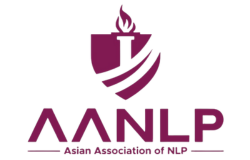FAQs

A: NLP stands for Neuro-Linguistic Programming. It is a methodology that helps individuals understand and manage their thoughts, emotions, and behavior patterns to achieve personal and professional success.
A: Emotional Intelligence refers to the ability to identify, understand, and manage one’s own emotions, as well as the emotions of others. It involves a set of skills that enable individuals to build positive relationships and communicate effectively.
A: Hypnotherapy is a type of therapy that uses hypnosis to induce a trance-like state in which an individual is more open to suggestions and able to access their subconscious mind. It is often used to help individuals overcome various issues such as anxiety, depression, and addiction.
A: The number of sessions required varies depending on individual needs and goals. Generally, it is recommended to have a minimum of 4-6 sessions to experience significant changes.
A: During a session, you can expect to engage in various techniques such as guided visualization, breathing exercises, and relaxation techniques. The therapist will guide you through the process and may ask you to share your thoughts and experiences.
A: Yes, hypnotherapy is a safe and effective therapy when conducted by a trained and licensed therapist. It is important to disclose any medical or mental health issues to your therapist before starting the therapy.
A: Yes, NLP is suitable for anyone willing to learn and develop new skills to improve their personal and professional life.
A: Komal takes all the sessions as of now. However, the team is expanding and will soon have well-trained individuals who are empathetic like her.
A: You can book a session by contacting us through the contact form on our website or by emailing us directly. We will respond to your inquiry within 24 hours to schedule a session.
A: Mindfulness meditation is a practice that involves paying attention to the present moment without judgment, helping reduce stress and increase feelings of calmness and well-being.
A: Breathing exercises involve intentionally regulating the breath to calm the body and mind, helping reduce anxiety and promote relaxation.
A: Visualization and guided imagery are techniques that involve creating mental images to achieve a specific goal or promote relaxation, helpful in reducing stress and anxiety.
A: Reiki healing is a Japanese technique that involves the transfer of energy through the hands to promote physical, emotional, and spiritual healing.
A: Emotional Freedom Techniques (EFT) involves tapping on specific energy meridian points while focusing on a specific issue to promote emotional healing and well-being.
A: Yoga and other physical practices, such as tai chi or qigong, can help promote physical health and fitness, improve flexibility and balance, and reduce stress and anxiety.



